Swimming sensation Joseph Schooling, 18, is all set and ready for next month’s SEA Games – and he is confident of adding to Singapore’s gold medal tally.
Click here to read about Schooling’s first Olympic gold in Rio 2016.
I recently caught up with Joseph to talk to him about living in the USA, his passion for swimming and his prospects at the SEA Games in Myanmar. I also got a few tips from him – for aspiring swimmers.
To find out what the Bolles School student, who plans to study Business and Finance at the University of Texas next year, said, do read on.
So Joseph, how is your training coming along for the SEA Games next month?
It’s going well. I fly back on Nov 28th and join the team on the 30th. On the 1st of Dec, we go to Phuket for our training camp so right now I am coping well. I have just finished my last high school meet and I did pretty well. So I am confident that I can do well at the SEA Games. (Joseph is optimistic of getting a gold medal for Singapore).
What are your pet events and your best timings for these?
My best stroke is the butterfly (the 100m and 200m fly) – 52:33 seconds for the 100m fly and 1minute 56:27 seconds for the 200m fly.
What made you initially take up swimming?
Well, my parents wanted me to, because Singapore is surrounded by water so they initially enrolled me in water safety classes. There were no intentions of making me into a world-class swimmer at that stage. They never thought that I’d be where I am today but they just wanted me to know how to tread water.
But I enjoyed swimming so much though – that I became what I am today. I was still young, about two or three years old when they submerged me and put me under the water but unlike other kids, I wasn’t afraid. I just used to giggle and found that I really liked being in the water.
I started to have professional aspirations about swimming when I was about eight or nine years old.
How has being based in the USA, helped you with your swimming?
Being in the US is a lot easier for me. For example, I don’t get the pressure and the media hype like I do in Singapore. In the US, I can just be a normal kid and I don’t have to worry about people watching my every move. I can focus on my own expectations as opposed to other people’s.
I can do what I want to do and be whom I want to be. I think the environment in the US is more suitable for competitive sports because everyone is so competitive and want to win. I’m not saying that people don’t want to win in Singapore but it is just more electrifying with a higher tempo in the US. That’s one of the reasons why I prefer being based here. I’d also say that the quality of the competition is a lot better in the US than Singapore.
As for the coaches, I’d say Sergio Lopez, whom I am training under now, is one of the best coaches in the world but Singapore has good coaches too, like my childhood coach Ian Turner, who was great. David Lim, whom I train under whenever I am back in Singapore, is also good. Singapore has the talent and the means but we are such a young country compared to the US and so we need more time to develop.
What is your secret to being able to swim so fast?
I think it’s not a secret. Basically you train hard, work hard and you have goals and aspirations. If you want something bad enough, you will do whatever it takes to get it.
Basically the secret is hard work, training and lots of talent.
What is your typical training schedule like?
For Monday, Wednesday and Friday mornings, it’s 5.30am to 7.30am and then I go to school. In the afternoons from Mondays to Fridays, it’s 3.15pm to 6.15pm and then Saturday mornings, my training is from 7am to 10am.
The rest of my time is free.
Do you have a specific diet that you follow as a top swimmer?
Well my nutritionist always encourages me to eat healthier but you know, we burn so much and we’re so thin that I really don’t have a special diet! I eat what I want, when I want and wherever I want and so I don’t have a secret special diet. I eat basically whatever a teenage boy like me feels like eating.
But obviously though I don’t eat McDonalds or Burger King every day. I eat fast food maybe once every two weeks or once a month sometimes. I’m not one of those kids who go crazy over fast food. I don’t crave it all the time. And I don’t eat ice cream a lot. I may have one ice cream as and when I feel like it, maybe once every fortnight or so. Of course, you can’t just pig out and eat all of this type of food all the time.
How do you fit in your swimming with your family and studies?
My parents alternate and take turns to come to the US because they’re not citizens so we sacrifice a lot of family and time together – so that’s hard. It’s very rare that both of my parents are on the same side of the world. Either my mum’s here or my dad’s here so when I am back in Singapore, I try to have as much family time as I can.
With school, it’s all time management. Yes, of course it’s harder than what typical students go through because of time constraints but you have to compartmentalise and try and sort out everything so we can’t really waste a lot of time.
So I try to be a good organiser and time manager, but I can’t say that I am the best at it.
What are some of the biggest challenges in your sports career so far?
I’d say probably getting up at 5.30am in the mornings during winter and going down and jumping into the pool during freezing cold temperatures. Going to swim outdoors when it’s cold, is probably one of the hardest things to do.
Other than that, my challenge is just trying to stay focused and being able to do things that are normal. Of course I have felt as though I just want to be a normal teenager. Like any other kid, I want to do things like going out with friends, staying over at other friends’ houses and that kind of thing, and sometimes I get frustrated by it. I have my ups and downs but I remind myself that I am here for a reason and this is the thing that keeps me going. I’ll never be a normal kid living a normal life, so that’s one of the hardest things about my swimming career.
I have a strong support group though, so that’s how I can overcome these challenges. My parents, coaches and friends are all supportive of what I do and that’s very important.
What tips do you have for aspiring swimmers?
I’d say make sure that you love and enjoy what you are doing. Make sure that your parents aren’t forcing you to do something that you don’t want to do. That’s the number one thing. Just enjoy what you are doing because if you do, everything else will seem so much easier.
What is one thing that serious swimmers shouldn’t do?
Basically, don’t do something crazy that will increase your chances of getting injured a few days before a meet. Just be smart about what you do and don’t do anything stupid, especially when you are getting close to your big meets.
I’m not saying that you should stay at home and lock yourself up in your room all day, but you have to be smart in what you do. For me, I like doing things other than swimming like playing golf, tennis, paintball or even doing shooting – pretty much very physical and athletic things. But just be careful about how you handle these activities.
Any final words that you have for those who want to take up swimming?
I’d just like to emphasise that you must enjoy what you are doing. Also, be aware of what you are doing all the time, especially for those kids who are just starting out. A lot of accidents can happen in the pool. For example, a kid jumps into the pool and hits his head on the floor of the pool and drowns – accidents like that. We think that accidents don’t happen often, but they do, so look out for dangers. You must also be passionate – to excel in the sport.
Click here to read about Schooling’s victory parade in Singapore.
Jo Schooling Wins ST Athlete of the Year 2015.

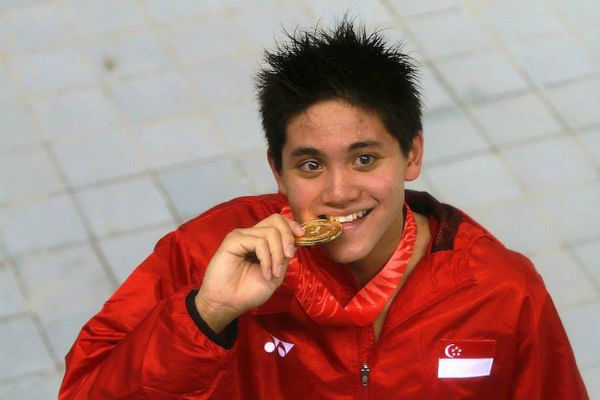
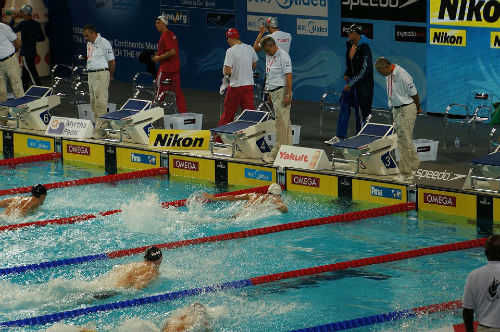
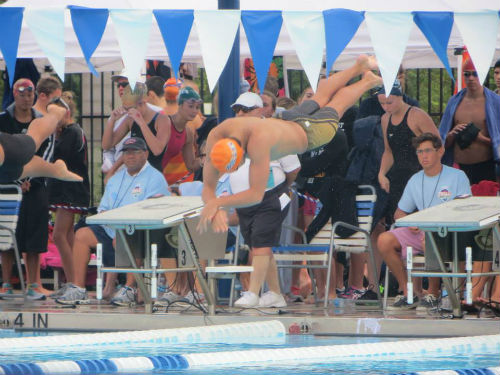
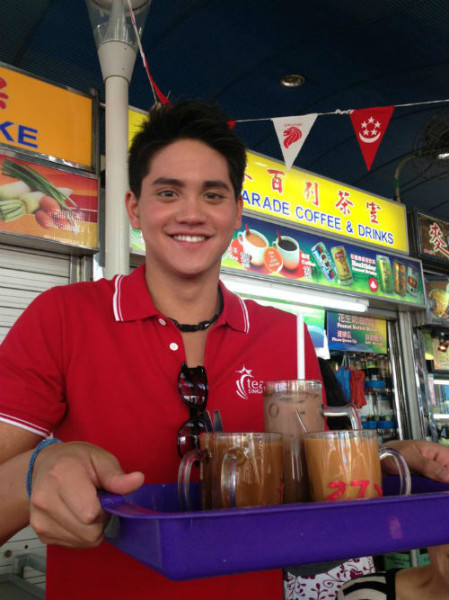
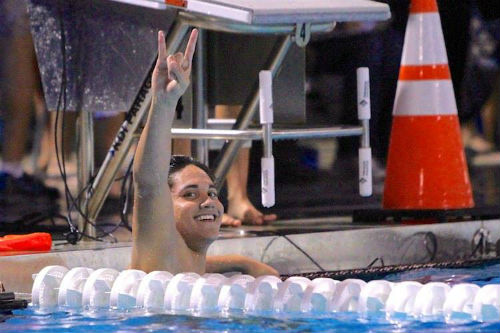
Leave a Comment